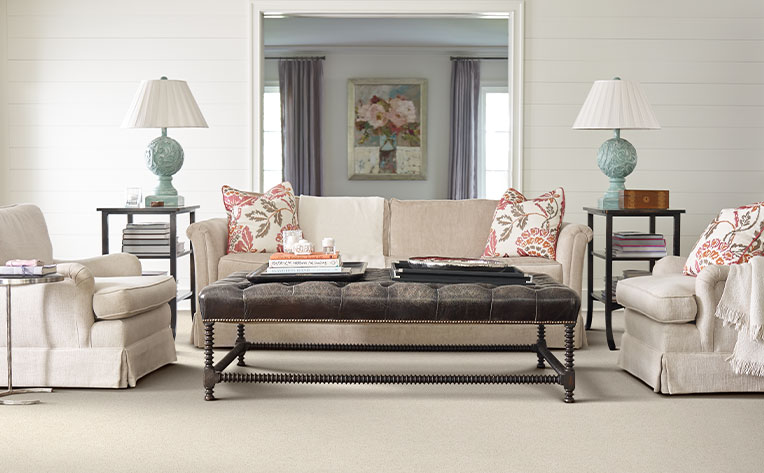Nov 26, 2025 | Flooring America

We know that planning a home improvement project often starts with one big question: "How much is this going to cost?" When it comes to new carpet, the answer isn't always a single number, but understanding where your money goes shouldn't be a mystery. We believe in honesty and transparency because that's how good neighbors do business.
Whether you're dreaming of a cozy bedroom retreat or refreshing a busy living room, this guide is here to help you make sense of carpet pricing. We'll walk you through the factors that influence the price tag, so you can find a beautiful, comfortable floor that fits your home and your budget perfectly.
Carpet costs vary widely, and it helps to know exactly what you are paying for. The final price usually depends on a mix of the material itself, how it's made, and the essential extras that ensure it lasts. Here are the main factors:
To help you budget, it’s helpful to consider the various styles available. We carry a wide range of options to suit every need, from high-traffic hallways to quiet bedrooms.
This is the classic, cut-pile carpet known for its soft, velvet-like surface. It’s a favorite for bedrooms and living rooms where comfort is key.
Berber features looped fibers that are tough and resilient. It’s often made from olefin or nylon, making it a sturdy choice for active areas.
Frieze carpets feature highly twisted fibers that curl in various directions, resulting in a knobby, casual appearance.
Patterned carpets mix cut and looped fibers to create visual designs, adding a touch of elegance and personality to any room.
Getting new floors doesn't have to break the bank. Here are a few neighborly tips to help you get the best value for your project:
You might see DIY tutorials online, but carpet installation is truly an art form. Improper installation can lead to wrinkling, buckling, and open seams, which can ruin the look of your room.
When you hire professionals, you're paying for peace of mind. Our installers handle the heavy lifting, ensure the seams are invisible, and stretch the carpet correctly so it stays taut for years. This ensures you get the full benefit of durability your carpet was designed to deliver. Additionally, professional installation is often required to maintain your manufacturer's warranty.
Usually, carpet is priced by the square foot for the material itself. Padding and installation are typically separate line items. We always provide a clear, all-inclusive estimate so there are no surprises.
Polyester is generally more budget-friendly, offering vibrant colors and good stain resistance. Nylon can cost a bit more but is incredibly resilient, making it a better long-term investment for busy homes.
Think of padding as the foundation of your floor. While basic options are affordable, investing a little more in memory foam or moisture-barrier padding offers significant benefits in comfort and protection.
We believe in being upfront. Potential extra costs can include moving heavy furniture, removing and disposing of your old carpet, or repairing uneven subfloors before we start. We’ll discuss all of this during your estimate.
5. What is the most durable carpet for the price?
For a great mix of durability and value, look for a high-quality nylon twist or a dense polyester frieze. These styles handle wear and tear beautifully without a premium price tag.
.jpg?rnd=5041)
Budgeting for new floors doesn’t have to be stressful. We're here to help you understand the costs and find an option that works for your budget and your home.
Visit our showroom to explore and compare carpet options in person. We’ll answer your questions, explain pricing clearly, and help you choose the perfect flooring for your family. Ready to get started? Schedule a free in-home estimate and take the first step toward transforming your space!